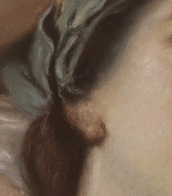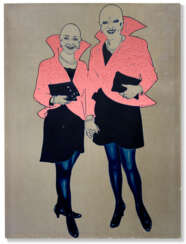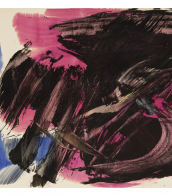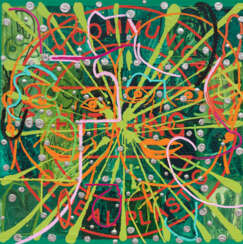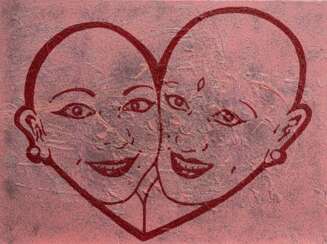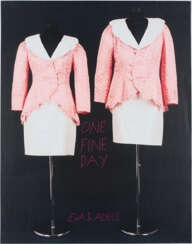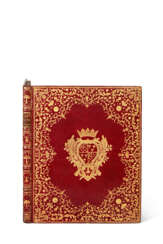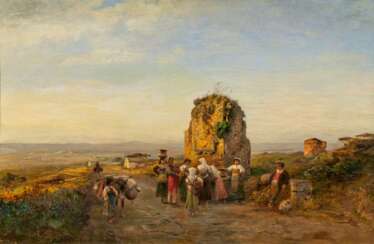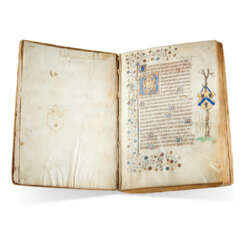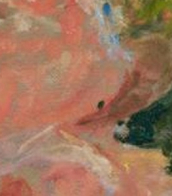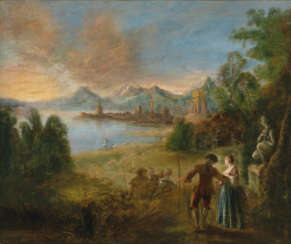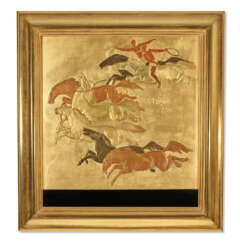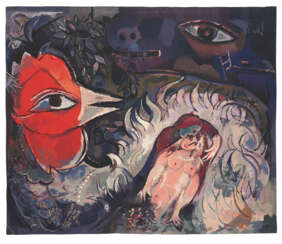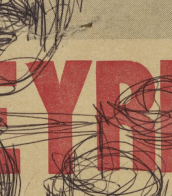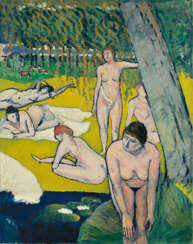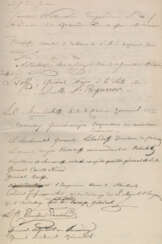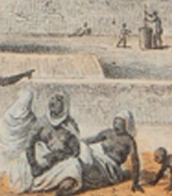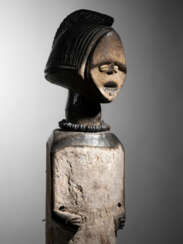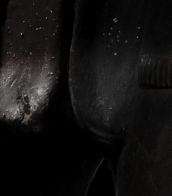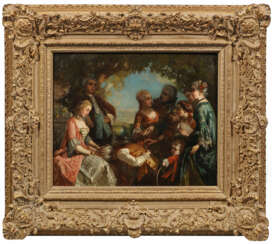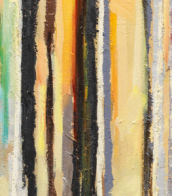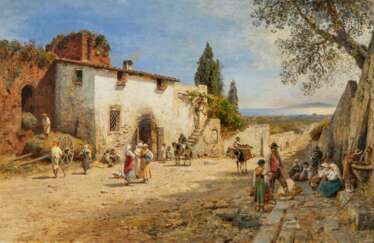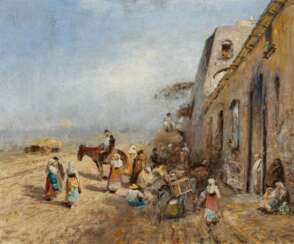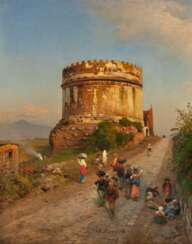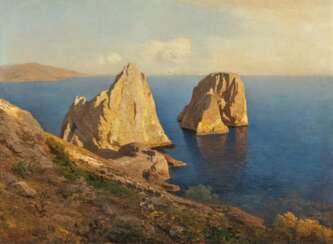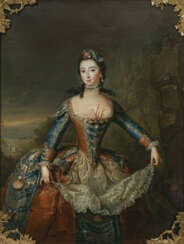eva&adele
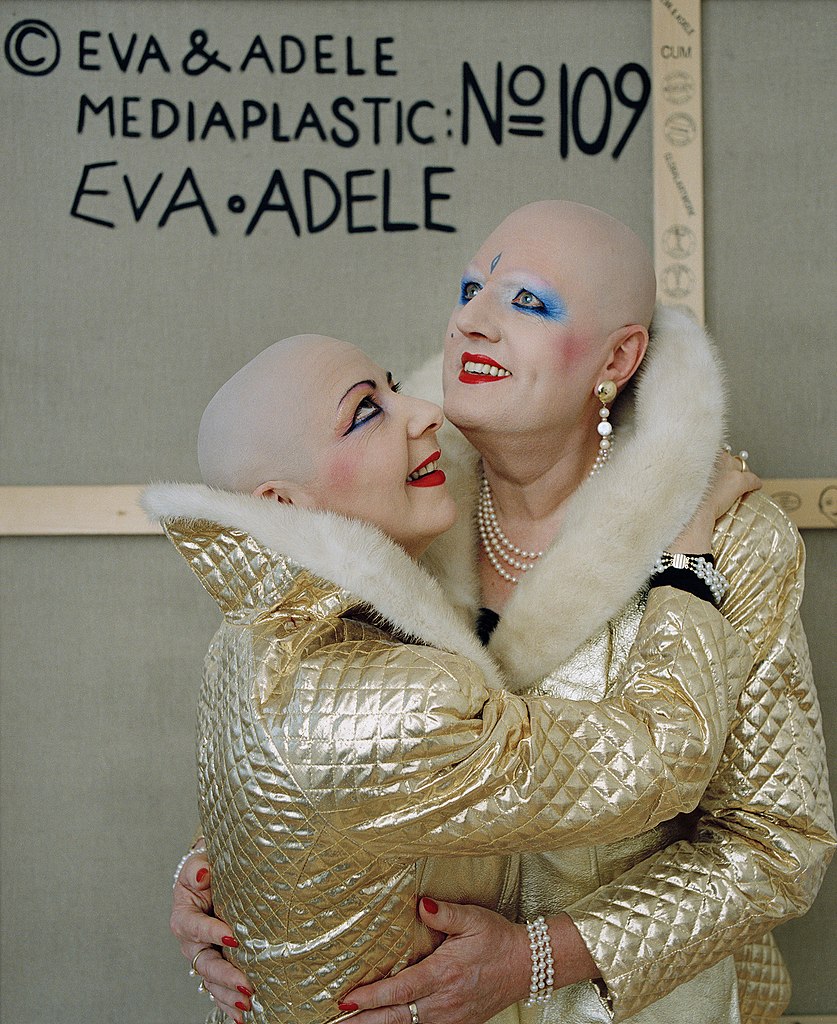
Eva & Adele are an artistic couple who claim to have "landed their time machines" in Berlin after the Wall fell in 1989, claiming to be "hermaphrodite twins from the future". Both refuse to tell their real name or age. They are famous mainly for sharing an invented gender, which is neither male nor female.
They are also known for their performance art, they have been represented by an art gallery since 1997, as they make paintings, video art, photography and costume design. They also have their own perfume line and a watch with Swatch.
They have been recognized as the world's longest running performance art duo and are often photographed as fashion icons at art events, like Art Basel Miami Beach and the Venice Biennale.
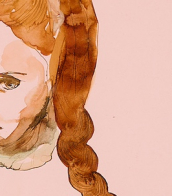

Eva & Adele are an artistic couple who claim to have "landed their time machines" in Berlin after the Wall fell in 1989, claiming to be "hermaphrodite twins from the future". Both refuse to tell their real name or age. They are famous mainly for sharing an invented gender, which is neither male nor female.
They are also known for their performance art, they have been represented by an art gallery since 1997, as they make paintings, video art, photography and costume design. They also have their own perfume line and a watch with Swatch.
They have been recognized as the world's longest running performance art duo and are often photographed as fashion icons at art events, like Art Basel Miami Beach and the Venice Biennale.


Eva & Adele are an artistic couple who claim to have "landed their time machines" in Berlin after the Wall fell in 1989, claiming to be "hermaphrodite twins from the future". Both refuse to tell their real name or age. They are famous mainly for sharing an invented gender, which is neither male nor female.
They are also known for their performance art, they have been represented by an art gallery since 1997, as they make paintings, video art, photography and costume design. They also have their own perfume line and a watch with Swatch.
They have been recognized as the world's longest running performance art duo and are often photographed as fashion icons at art events, like Art Basel Miami Beach and the Venice Biennale.


Eva & Adele are an artistic couple who claim to have "landed their time machines" in Berlin after the Wall fell in 1989, claiming to be "hermaphrodite twins from the future". Both refuse to tell their real name or age. They are famous mainly for sharing an invented gender, which is neither male nor female.
They are also known for their performance art, they have been represented by an art gallery since 1997, as they make paintings, video art, photography and costume design. They also have their own perfume line and a watch with Swatch.
They have been recognized as the world's longest running performance art duo and are often photographed as fashion icons at art events, like Art Basel Miami Beach and the Venice Biennale.
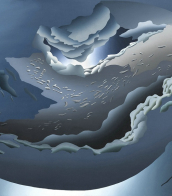

Eva & Adele are an artistic couple who claim to have "landed their time machines" in Berlin after the Wall fell in 1989, claiming to be "hermaphrodite twins from the future". Both refuse to tell their real name or age. They are famous mainly for sharing an invented gender, which is neither male nor female.
They are also known for their performance art, they have been represented by an art gallery since 1997, as they make paintings, video art, photography and costume design. They also have their own perfume line and a watch with Swatch.
They have been recognized as the world's longest running performance art duo and are often photographed as fashion icons at art events, like Art Basel Miami Beach and the Venice Biennale.
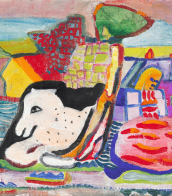

Eva & Adele are an artistic couple who claim to have "landed their time machines" in Berlin after the Wall fell in 1989, claiming to be "hermaphrodite twins from the future". Both refuse to tell their real name or age. They are famous mainly for sharing an invented gender, which is neither male nor female.
They are also known for their performance art, they have been represented by an art gallery since 1997, as they make paintings, video art, photography and costume design. They also have their own perfume line and a watch with Swatch.
They have been recognized as the world's longest running performance art duo and are often photographed as fashion icons at art events, like Art Basel Miami Beach and the Venice Biennale.
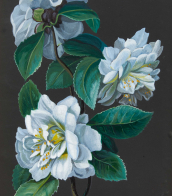
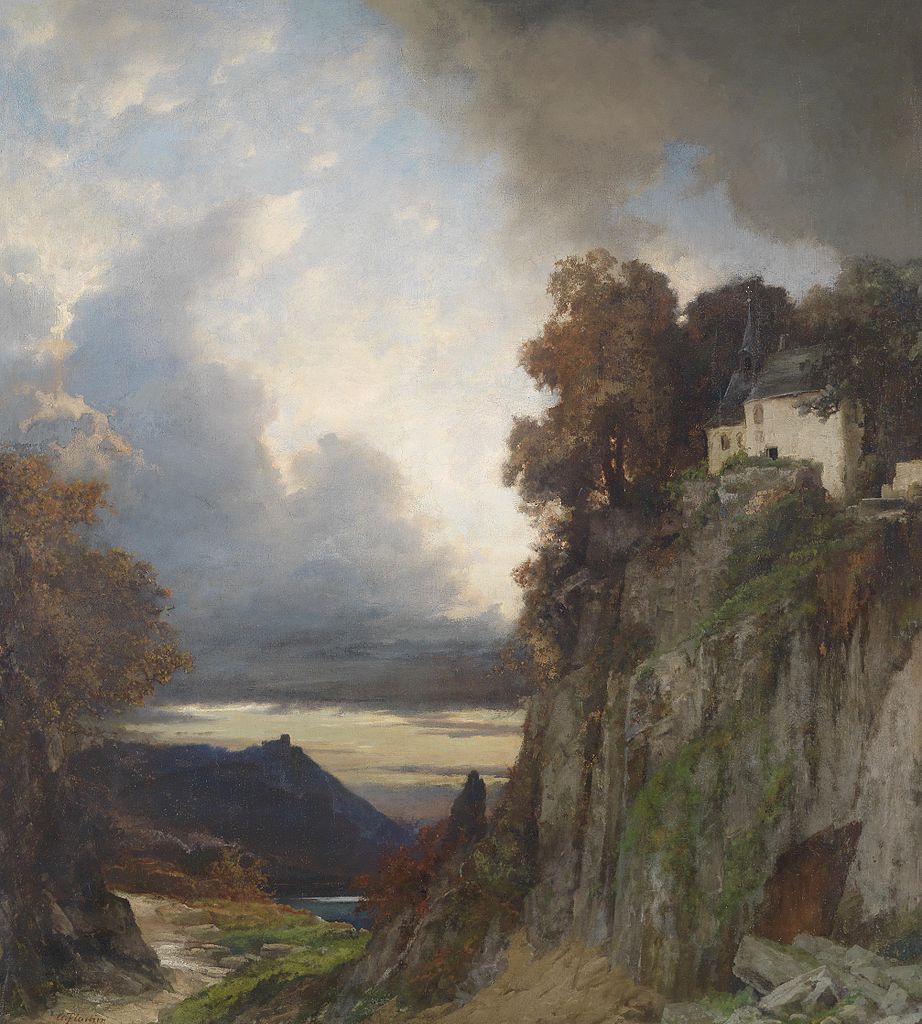
Albert Flamm was a German artist of the Düsseldorf school. He studied architecture at the Dusseldorf Academy of Art and in Antwerp. In 1841 he turned to painting and became a pupil of Andreas Achenbach. In 1848 Flamm became one of the founders of the Malkasten artists' association.
Albert Flamm painted mainly Italian landscapes, recognised for their truthfulness of nature, their vivid colours and their virtuosic treatments. He often chose an elevated viewing position to be able to create wide panoramic perspectives in warm, bright sunlight and with finely rendered detail.
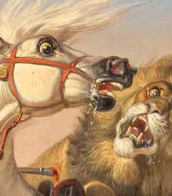
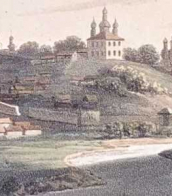

Jean-Antoine Watteau was a French painter and draughtsman whose brief career spurred the revival of interest in colour and movement, as seen in the tradition of Correggio and Rubens. He revitalized the waning Baroque style, shifting it to the less severe, more naturalistic, less formally classical, Rococo. Watteau is credited with inventing the genre of fêtes galantes, scenes of bucolic and idyllic charm, suffused with a theatrical air. Some of his best known subjects were drawn from the world of Italian comedy and ballet.
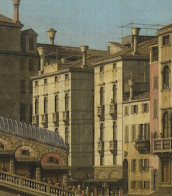
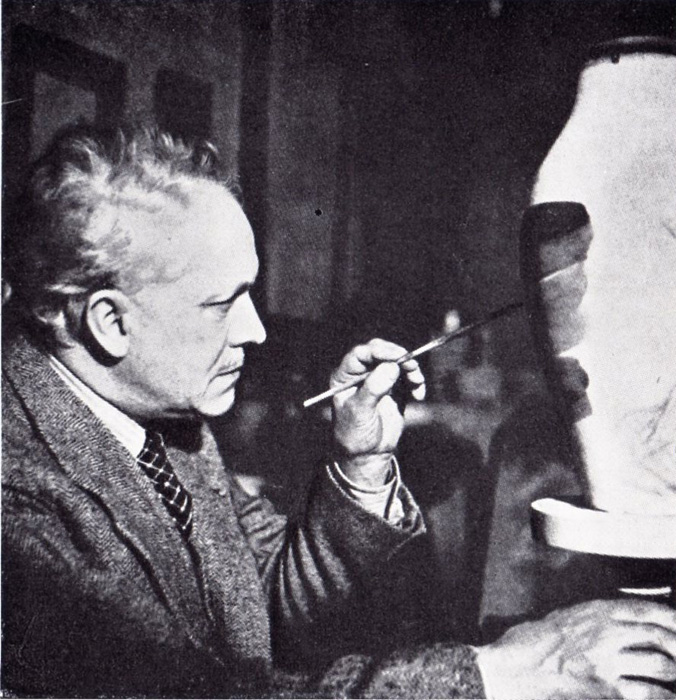
Raoul Dufy, a renowned French artist, is celebrated for his vibrant and decorative style, which left a significant mark in the realms of Fauvism and Post-Impressionism. Born in 1877 in Le Havre, France, Dufy's artistic journey was profoundly influenced by Henri Matisse's Fauvist work "Luxe, Calme et Volupté," which he encountered at the Salon des Indépendants in 1905. This experience steered him towards Fauvism, a style that emphasized bold contours and bright colors.
Dufy's artistic evolution saw him briefly embrace Cubism around 1920, after which he developed a unique approach. This approach, often referred to as stenographic, was characterized by skeletal structures, foreshortened perspectives, and the use of thin, quickly applied washes of color. His works, known for their cheerful and fashionably decorative nature, often depicted scenes of leisure like yachting, the French Riviera, and chic parties, capturing the essence of the period's optimism.
In addition to his painting, Dufy was also a commercial artist, illustrator, and designer, contributing significantly to textile design and public murals. His large-scale public art commissions combined modern and allegorical subjects with exuberant outlines and intense colors, showcasing a modernist take on traditional mural work. Notable works by Dufy include "The Regatta," "The Harvester," and the monumental "The Electricity Fairy," a large mural commissioned for the 1937 World's Fair in Paris.
His works are housed in prestigious public collections worldwide, including the Art Institute of Chicago, the Musée d'Art Moderne de Paris, and the National Gallery of Art in Washington, D.C. Despite his artistic achievements, Dufy's focus on decorative art and the lack of engagement with wider social concerns has led to a varied critical reception of his work. Nonetheless, his contribution to 20th-century art, particularly in popularizing a vibrant and illustrative style, remains undisputed.
If Raoul Dufy's artistry captivates you and you wish to stay informed about the latest artworks, exhibitions, and auction events related to this remarkable artist, we invite you to sign up for our updates. By subscribing, you'll receive timely notifications about new pieces for sale and upcoming auctions. This is a wonderful opportunity for collectors and art enthusiasts to enhance their appreciation and possibly their collections of Dufy's work. Stay connected with the world of art and don't miss any chance to acquire unique pieces by this celebrated artist.
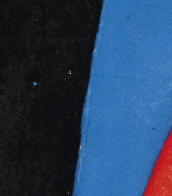
.jpeg)
Jean Dunand was a Swiss and French painter, sculptor, metal craftsman and interior designer during the Art Deco period. He was particularly known for his lacquered screens and other art objects.
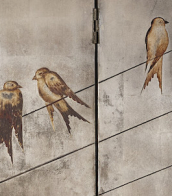
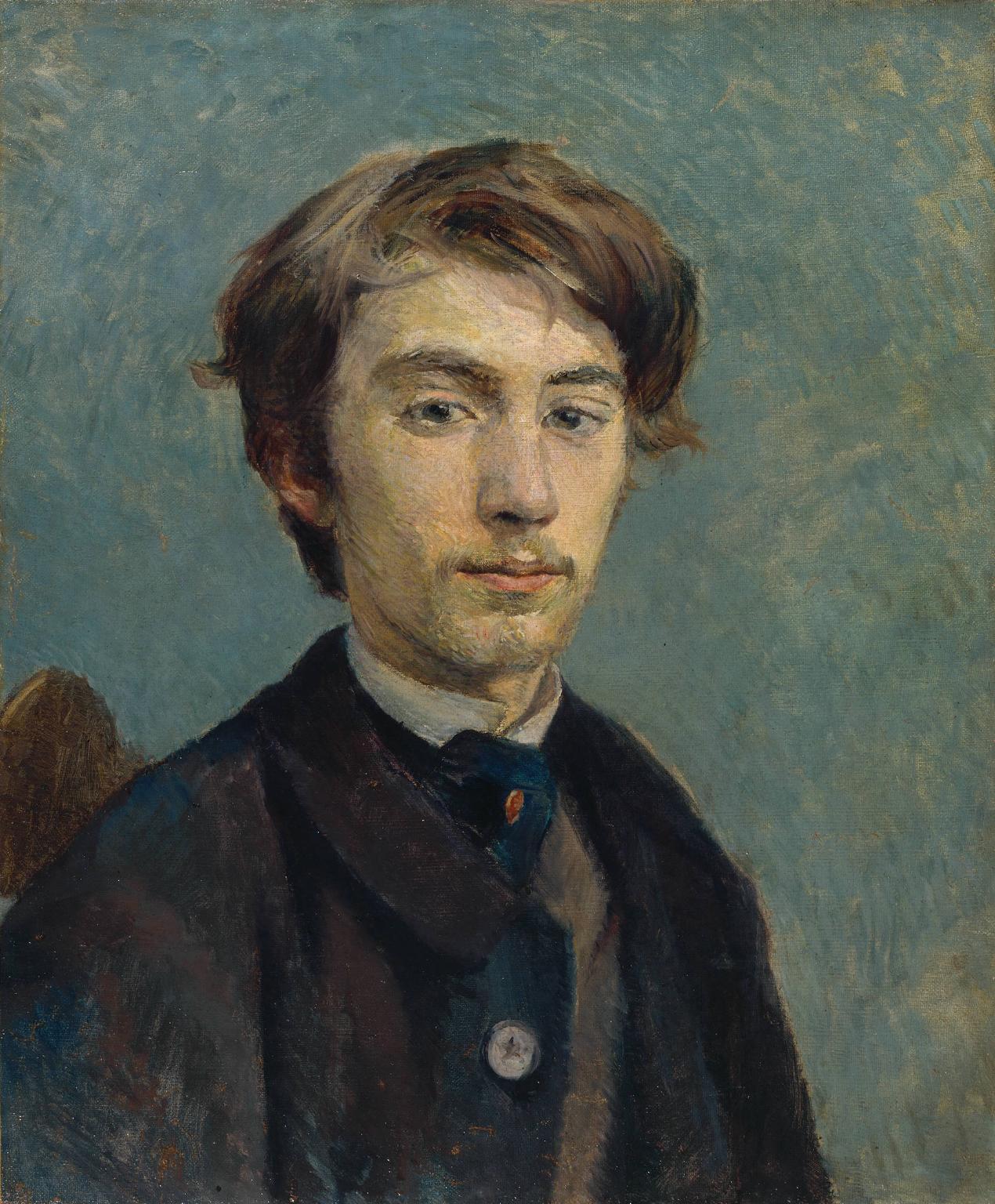
Émile Bernard, a French painter, was a significant figure in the Post-Impressionist movement. He is most famously associated with the development of Cloisonnism, a painting style characterized by bold outlines and flat, vivid color planes, and he played a role in Synthetism, a synthesis of forms and colors in art.
Bernard's artistic journey was influenced by his interactions with notable artists such as Paul Gauguin, Vincent van Gogh, and Louis Anquetin. His works, which often explored themes of symbolism and religious imagery, ranged from traditional paintings to engravings and illustrations. One of his notable works, "Madeleine au Bois d'Amour," is displayed at the Musée d'Orsay in Paris.
Despite his early success and influence, Bernard's artistic trajectory took a turn towards classicism later in life, distancing himself from the avant-garde styles he once embraced. His extensive travel experiences, particularly his time in Egypt, significantly impacted his art, leading to a broader range of stylistic elements in his later works.
To stay updated on the latest events and auctions related to Émile Bernard and his work, sign up for our newsletter. You'll receive timely alerts about new product sales and upcoming auction events related to Émile Bernard's art.
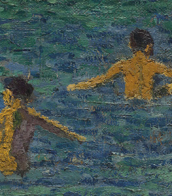

Albert Flamm was a German artist of the Düsseldorf school. He studied architecture at the Dusseldorf Academy of Art and in Antwerp. In 1841 he turned to painting and became a pupil of Andreas Achenbach. In 1848 Flamm became one of the founders of the Malkasten artists' association.
Albert Flamm painted mainly Italian landscapes, recognised for their truthfulness of nature, their vivid colours and their virtuosic treatments. He often chose an elevated viewing position to be able to create wide panoramic perspectives in warm, bright sunlight and with finely rendered detail.


Albert Flamm was a German artist of the Düsseldorf school. He studied architecture at the Dusseldorf Academy of Art and in Antwerp. In 1841 he turned to painting and became a pupil of Andreas Achenbach. In 1848 Flamm became one of the founders of the Malkasten artists' association.
Albert Flamm painted mainly Italian landscapes, recognised for their truthfulness of nature, their vivid colours and their virtuosic treatments. He often chose an elevated viewing position to be able to create wide panoramic perspectives in warm, bright sunlight and with finely rendered detail.


Albert Flamm was a German artist of the Düsseldorf school. He studied architecture at the Dusseldorf Academy of Art and in Antwerp. In 1841 he turned to painting and became a pupil of Andreas Achenbach. In 1848 Flamm became one of the founders of the Malkasten artists' association.
Albert Flamm painted mainly Italian landscapes, recognised for their truthfulness of nature, their vivid colours and their virtuosic treatments. He often chose an elevated viewing position to be able to create wide panoramic perspectives in warm, bright sunlight and with finely rendered detail.


Albert Flamm was a German artist of the Düsseldorf school. He studied architecture at the Dusseldorf Academy of Art and in Antwerp. In 1841 he turned to painting and became a pupil of Andreas Achenbach. In 1848 Flamm became one of the founders of the Malkasten artists' association.
Albert Flamm painted mainly Italian landscapes, recognised for their truthfulness of nature, their vivid colours and their virtuosic treatments. He often chose an elevated viewing position to be able to create wide panoramic perspectives in warm, bright sunlight and with finely rendered detail.

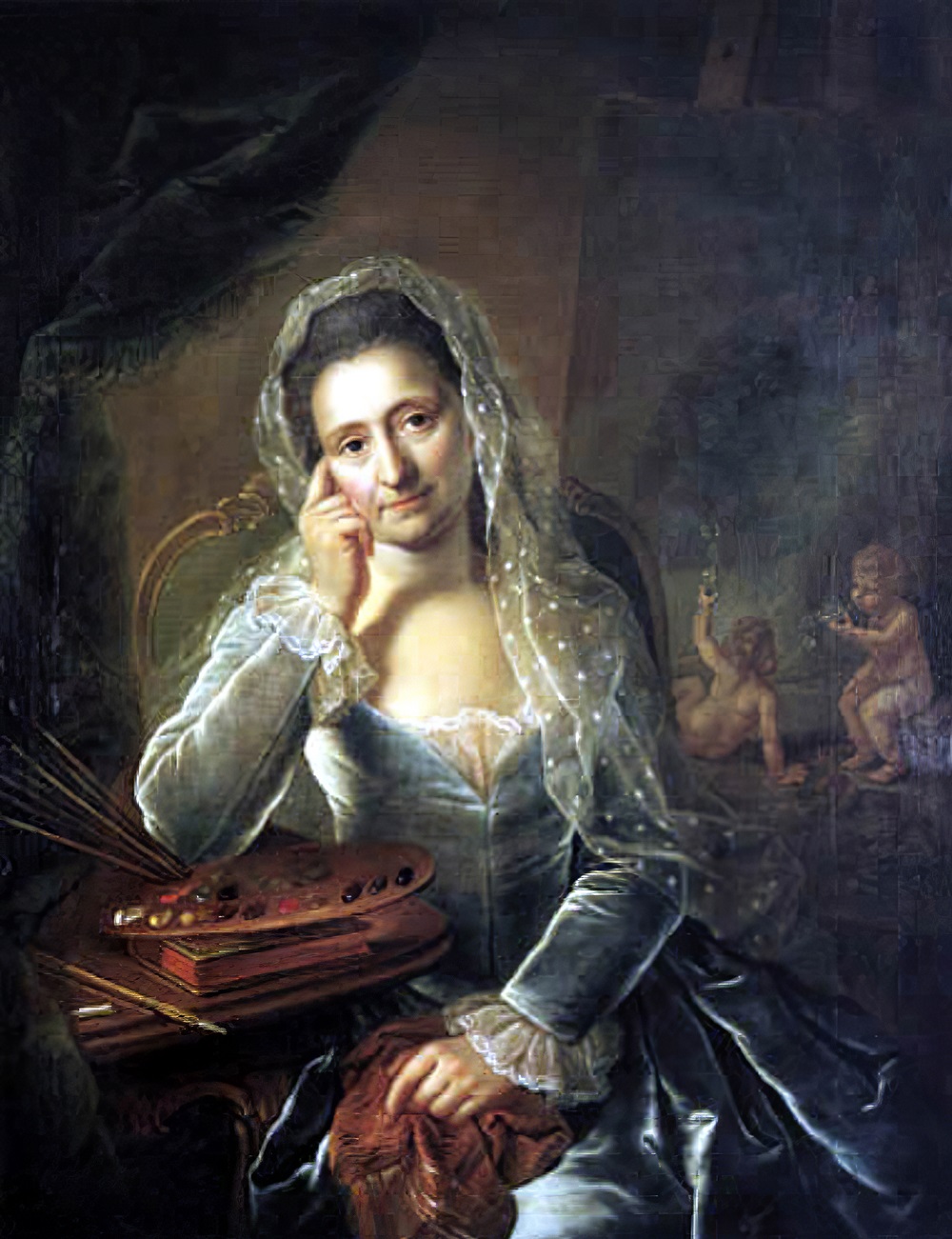
Barbara Rosina de Gasc (Lisiewska) was a German portrait painter.
